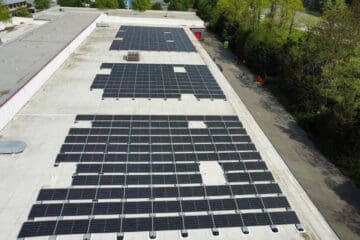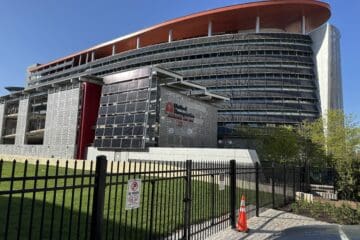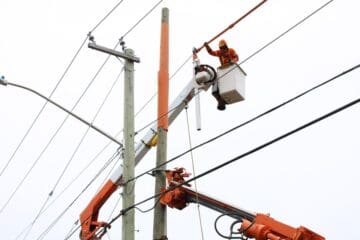Switching to solar energy is a significant decision for any business, offering the potential for long-term savings and sustainability. Additionally, the Inflation Reduction Act (IRA) has provided such robust support for domestic solar manufacturing that even a change in administration is unlikely to disrupt the industry’s growth. This guide will walk you through the key factors, expected expenses, and financial benefits of investing in solar energy for your commercial property.
What Affects the Price of Commercial Solar Panel Systems?
Several factors influence the cost of installing solar panels for commercial buildings:
- System Size and Energy Needs: Larger systems designed to meet higher energy demands will naturally cost more. Your energy requirements will determine the number of panels and the system’s complexity.
- Installation Complexity: The architecture of your building, roof material, and structural integrity can affect installation costs. For instance, a flat roof requires different mounting equipment compared to a sloped roof.
- Local Incentives and Rebates: Businesses in Maryland can benefit from federal and state incentives, which may significantly reduce costs. These programs vary by location and utility provider.
Major Costs of Installing Solar Panels on Commercial Buildings
Solar estimates and proposals typically include the following components:
- Design and Engineering: Customized plans to meet your energy goals and site conditions.
- Permitting and Utility Interconnection: Compliance with local regulations and coordination with utility providers.
- Panels and Equipment: Solar panels, inverters, mounting systems, accessories, and batteries (if applicable).
- Installation: Labor and materials required to install the system.
It’s crucial to work with a reputable solar provider who offers transparent pricing and comprehensive estimates.
Hidden Costs and Savings When Installing Solar Panels for Your Business
While upfront costs are a primary concern, consider these hidden costs and potential savings:
Hidden Costs
- Maintenance and Repairs: Although solar panels are low-maintenance, periodic cleaning and inverter replacements may be necessary.
- Energy Storage: Adding batteries for energy storage increases costs but provides energy independence.
- Utility Upgrades: Some installations may require upgrades to your electrical system.
Hidden Savings
- Tax Incentives: The federal Investment Tax Credit (ITC) allows businesses to deduct 30% of installation costs.
- Reduced Energy Bills: Solar energy reduces monthly energy expenses, leading to substantial long-term savings.
- Renewable Energy Credits (RECs): Businesses can sell RECs to utility companies for additional income.
The ROI of Investing in Solar Energy for Commercial Properties
Investing in solar panels offers a compelling return on investment (ROI) over time. Here’s why:
- Energy Cost Reduction: Savings on energy bills, depending on your system’s efficiency and energy usage.
- Increased Property Value: Solar-equipped buildings often have higher resale values.
- Environmental Impact: Demonstrating a commitment to sustainability can attract environmentally conscious clients.
The typical payback period for commercial solar systems is 5 to 10 years, with systems lasting 25 years or more.
Financing Options for Commercial Solar Systems
Affording solar installation is easier with various financing options, including:
- Loans: Secured or unsecured loans to spread costs over several years.
- Leases: Leasing allows businesses to install solar panels without upfront costs, paying a fixed monthly fee.
- Power Purchase Agreements (PPAs): Under a PPA, you pay only for the energy your system generates.
- Grants and Rebates: Local, state, and federal programs can offset installation expenses significantly.
Conclusion
Commercial solar panel installation is a cost-effective renewable energy solution that offers long-term savings and environmental benefits. The Inflation Reduction Act (IRA) has fortified the solar manufacturing industry in the U.S., ensuring its growth remains strong regardless of political changes. By understanding the factors influencing installation expenses and exploring financing options, businesses in Maryland can make informed decisions about investing in solar energy. With proper solar installation budget planning and a focus on ROI, your business can achieve energy independence while contributing to a sustainable future.



